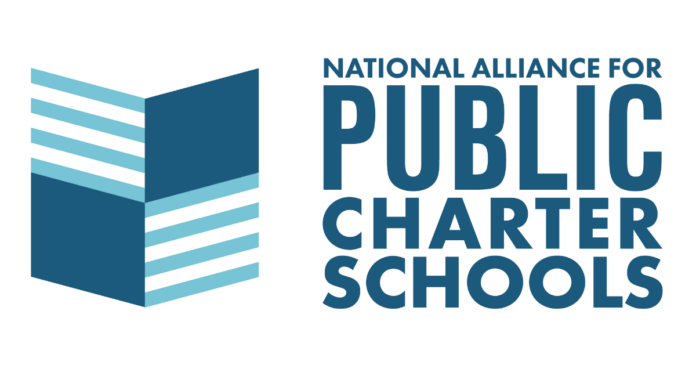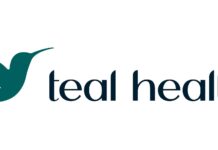( ENSPIRE Community Spotlight ) The National Alliance for Public Charter Schools Celebrated Black History Month by Highlighting Four Leaders Making an Impact in Their Communities
ENSPIRE Contributor: Kaleigh Gabriel
National Alliance for Public Charter Schools celebrated Black History Month by sharing the inspiring stories of four education leaders who are making an impact in the charter school community. Each week throughout February, the National Alliance featured Black advocates, teachers, and school leaders across its website and social channels, as part of the “Making Black History in the Moment” campaign. The campaign was designed to showcase leaders who are making Black History right now and touching the lives of thousands of students.
Education leaders Lenny McAllister, Genel Fowler, Khadijah Williams, and Lagra Newman were all featured individuals due to their outstanding work and achievement in their communities. In an interview with ENSPIRE Magazine, McCallister, Newman, and Williams answered questions about their experiences as charter school educators.
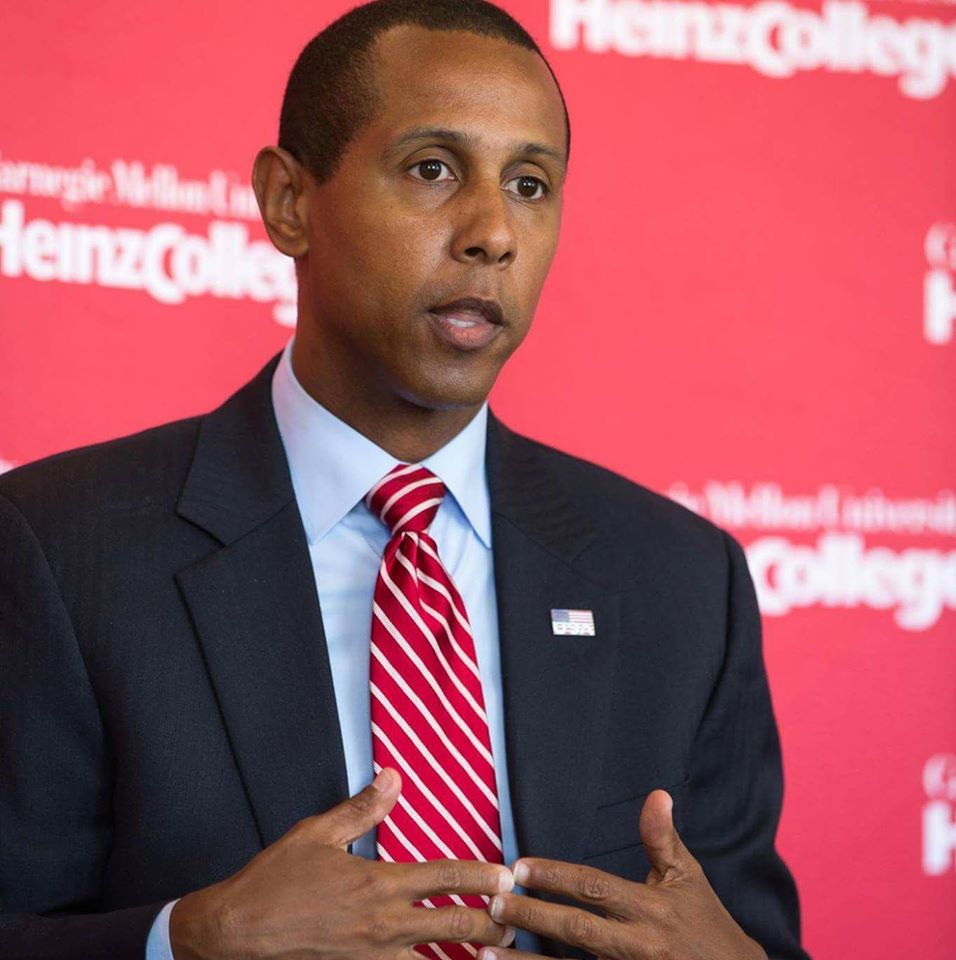
Lenny McAllister, part of the Pennsylvania Coalition of Public Charter Schools has been a champion for education equity, civil rights, and policy reforms as a leading voice on local, statewide, and national platforms throughout his decades-long career in Pennsylvania and nationally. The growth of public charter schools in the state is at an all-time high due in part to the agility charter schools have been able to exercise in the face of the pandemic.
“I welcome the opportunity each day to be an advocate for charter students and their families as we work together to ensure these children have the academic opportunity they deserve,” McAllister said. “I believe education is the great equalizer and I am honored to support our network of charter schools, which serve students in every corner of the state.”
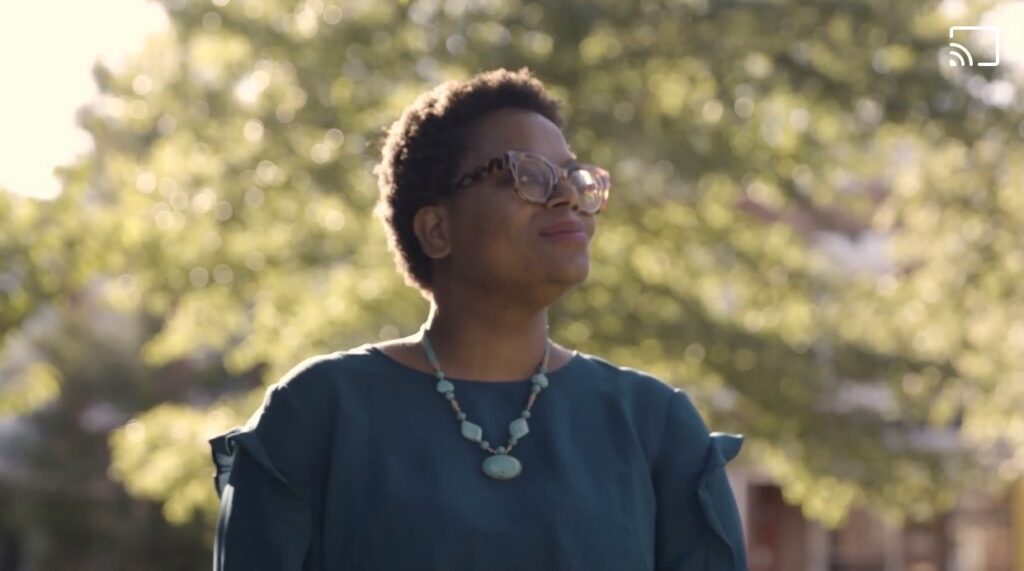
Khadijah Williams is a nationally recognized advocate for homeless youth and a survivor of homelessness herself. After nearly 20 years of living without a permanent home—including time spent in Los Angeles’ infamous Skid Row—Ms. Williams was accepted into Harvard University, where she graduated in 2013. Today she leads parent engagement work at Rocketship Public Schools, a charter school network based in the Bay Area, Milwaukee, Nashville, and Washington, D.C.
“I believe it is incumbent on a coalition of diverse leaders to seek opportunities to identify, challenge, and change prevailing narratives about educating vulnerable youth while ensuring there is a place for marginalized voices within both the affected community and within positions of power,” Williams said. “All lives have value and we can’t afford to overlook talent and potential in anyone. Diverse leaders thrive when organizations prioritize the perspectives of all marginalized voices across departments, positions, and decision-making. I am committed to making sure everyone understands that.”
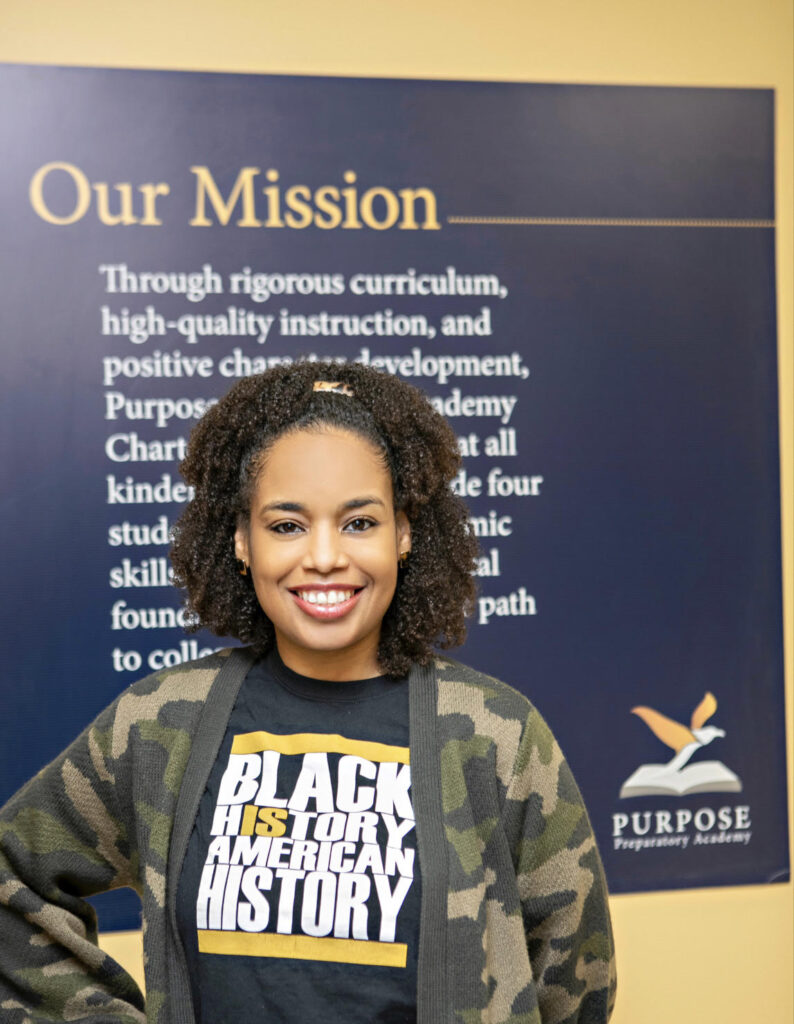
Lagra Newman has a proven track record of transformative academic outcomes for students. Ms. Newman founded Purpose Prep in an economically-underserved area of Nashville. In 2017, Purpose Prep was recognized as a Tennessee Reward School for academic achievement, ranking within the top 5% of schools in the state of Tennessee. Purpose Prep is the first elementary school in North Nashville to ever have earned this distinction. It was also recognized as one of the top academic performing schools that accelerates the achievement of economically-underserved students.
“I believe in the power of high-quality education and I know it can change the trajectory of a child’s life. As an education advocate and leader of color, I am devoted to educational equity. I want all children to have access to high-quality public schools. As the Founder of Purpose Preparatory Academy Charter School, I am a part of the solution to realize this vision for my community,” Newman said.
How do you feel your background and knowledge assist in elevating your students?
LM: I believe that my background aids my efforts in advocating for all students, notably those utilizing school choice within public education, because of my own story as a scholarship kid—notably in high school but also in college. Without the opportunity to expand my horizons through the options provided by school choice, I would not have received the experiences that stretched my potential and expanded my view of the world. School choice—especially within public education where charter schools provide avenues for success that families without economic means cannot secure otherwise—is a door-opening mechanism that reconnects the overlooked and the underserved back to the fullness of the American Dream and the richness of our modern economy. My knowledge of struggles (e.g., dropping out of college and becoming both a first-time dad and a deli clerk by age 22) on the journey to obtaining academic success has been invaluable, as they have allowed me to relate to those that must overcome harsh challenges, discouraging environments, and scarce resources in order to graduate and develop their better selves.
LN: As a Black woman and Black educator, I have an acute awareness of the oppression that suppresses the brilliance of our Black students. Through my own experiences as a Black woman who has traversed the inequities of our education system, I am able to leverage my expertise to create structures that empower and affirm our scholars. As a Savannah, Georgia native, I uniquely understand how the race dynamics of the South have precluded access to quality education for young Black and Brown scholars. While at Vanderbilt University, I witnessed the challenges that the North Nashville community faced and the obstacles that stood in the way of our scholars’ belief that a college education was even in their future. The trajectory that elementary students of my community were on before Purpose Prep did not even allow them to see places like Vanderbilt—a beacon of educational excellence in their own backyard—as an attainable option for them. Purpose Prep is changing that. Through a commitment to rigorous education and identity affirmation, Purpose Prep positions our students to elevate above and dismantle oppressive systems while enabling them to question why those systems exist in the first place. We are cultivating change agents through our revolutionary work.
KW: Because I grew up chronically homeless, I experienced a lot of the traumas that my families have experienced. I have also, due to my work experience in mediation, problem-solving, community engagement, and parent capacity building, I am able to utilize these experiences and the experiences of my families to help them utilize their own inherent potential to reach their goals and create systemic change.

What would you say makes the leaders impacting history most effective and how can others emulate this in their classrooms/communities/world?
LM: The most impactful leaders that shape history for the better are people that can effectively have both dirt underneath their fingernails and stars in their eyes. These leaders are the people that have a grit of spirit and polish that usually comes from hardening experiences and perseverance. These individuals are capable of relating to others in the depths of their troubles with a tangible, relatable, and memorable bond that leads people from myopic views that limit progress towards a broader belief in themselves, the malleability of their situations, and the transformative capabilities due to faith, family, or foundation values. The best leaders show their power in their imperfections. They can smile and laugh with a resonance that shatters pain or pessimism. They speak with a vision that reassures the lonely, the fearful, and the unexposed. Now, how can others emulate this in their classrooms? Simply: they bring this success to their students whenever they open the world to them in a welcoming fashion despite the poverty within a school community or a set of neighborhoods. Their knowledge of the stories of overcoming is key in showing first-generation academic successors the importance of being in the mission ahead, not the legacy behind them.
LN: One thing I admire about our leaders—past and present—is that they lift as they rise. The question I always find myself asking is “how can I use my experiences to create opportunities for others to thrive?” Vice President Kamala Harris perfectly embodies this leadership quality, which she has displayed most notably in her victory speech in which she remarked, “While I may be the first woman in this office, I will not be the last, because every little girl watching tonight sees that this is a country of possibilities.” I strongly believe that we must carry our communities with us and work to ensure that they are rising with us as we climb.
KW: The most impactful leaders are often, one, not seen as leaders during most of the time they are leading; two, are seen as controversial. Leaders who impact history do so because they buck what is the prevailing narrative of power and show a path to an alternative reality and possibility for the marginalized. Being a leader is challenging work precisely because as a leader, you are setting the trend, you are paving the road, you are breaking the glass ceiling. And falling, cracking glass hurts. You’re getting the bulk of it, in your eyes, in your clothes, but you are creating an open and safe path for others for your sacrifice. The way to emulate leaders is not easy. You have to be able to persuade, you have to be able to think big, but you also have to have core principles that you are not willing to compromise on, and that will at some point get you in trouble far before it will get you in history books. Let’s not forget that Martin Luther King was assassinated and put on the watch list of the FBI. The point is, there are core things you can do, from educating yourself about the systems you want to change, remaining humble to the idea that you have something to learn from everybody, and figuring out how to compel people to believe in your cause, but you also have to be the person who is willing to be the lone advocate or fighter for your cause.
What changes, if needed, do you think should be made to the public charter school curriculum to help close the opportunity gap?
LM: Public charter schools must teach our children to expect to be leaders in all aspects of modern society. We must ensure that we study that there is no land where they cannot contribute to the global economy and that there is no job where they cannot contribute as a force for good. We must ensure that our children see themselves in all aspects of history. We must ensure that our children expect to be academic leaders—that optimizing talent is the greatest goal, not just getting an A or a B as a grade. We must be sure that the curricula used by public charter schools are truly innovative and visionary, being bold enough to be on the cutting edge of learning and economy-readiness. We must teach our children that they can make jobs, they can craft their dreams into products with their minds and hands, and they can achieve success within any realm of pursuit. Catching up academically to their peers is not the goal; leading them is.
LN: A study that has guided a lot of our work at Purpose Prep is The New Teacher Project’s report on the opportunity myth which revealed that students from low-income families spend most of their time working on class-related assignments, but few are actually meeting grade-level standards because their work samples are significantly below grade-level. Our children are capable to so much more, and these low expectations exacerbate the gaps of opportunity and achievement between children of different racial and economic groups throughout our nation. Classrooms that predominantly served students from higher-income backgrounds spent twice as much time on grade-appropriate assignments and five times as much time with strong instruction, compared to classrooms with students from predominantly low-income backgrounds. Children cannot be successful if we aren’t challenging them with a rigorous curriculum that empowers them to be college-ready—and that they are capable of.
KW: Focusing on charter school curriculum is too narrow. Of course, you need to make it culturally relevant and responsive. You need to ensure that there are scaffolds and accommodations for every student and that that work is truly personalized to every student. But you also need to work on the culture of the staff executing that curriculum. What are their beliefs? How do they relate to their students and families? Although charter school staff are typically more diverse than traditional public schools, their leadership structures, like the majority of nonprofits and nonprofit public schools, are often virtually all-white. So it is also important to understand how a charter’s leadership structure also contributes to the norms and practices of a particular charter curriculum and program, and interrogate any biases, explicit and implicit, and interrogate other structures that may not directly relate to the curriculum but are just as critical to the development and execution of an excellent curriculum.

The nation shut down due to COVID-19 has been especially hard on school-aged children. What effects of the pandemic have you seen in schools in your area? How have you gone about limiting those effects for your students?
LM: As a leader for the PA Coalition of Public Charter Schools, we remain active in pushing for safe in-person instruction. We advocate and highlight the innovative advantages that our public charter schools are putting into place so that students struggling with the varying aspects of COVID-19 can find academic solitude and community stability within the charter school communities. Whereas many district schools students in urban areas have been doing 100% virtual instruction, our schools have stepped up to ensure that our students have the regular, ongoing, and nurturing support necessary to continue learning.
LN: When the pandemic hit, our predominantly Black students, families, and faculty were some of the hardest hit. As we navigated virtual learning, we aimed to close the digital divide and the information gap that exists in the know-how and tools families have to support scholars in navigating technology successfully. Several of Purpose Prep’s students are raised by their grandparents who may have a harder time navigating the technological aspects of home learning. We have been able to pivot quickly to ensure that 100% of our families have what they need to successfully and comfortably from home. We’ve provided laptops and hotspots to all families who didn’t have them at home. We have also hosted intensive training sessions on how to manage the technology through office hours for families with questions or those who are less familiar with the tech. We shifted to using an app that allows for the streamlining of all logins so families don’t have to worry about all of the usernames and passwords their scholars may need to access critical parts of their learning.
KW: Quite honestly everyone is exhausted in a way that they never have been before. This pandemic has had such a tough impact on everyone, families, staff, and students. Usually, there are natural breaks between home, work, and school. That isn’t the case now. That, in combination with isolation, means that we do not have the natural break times that we usually get, and so we are forced to perform with numerous distractions and requests on our time. Parents and teachers have to manage their classrooms and their households. Eyes are worn down and irritated. Children are not getting the social interaction and stimulation that they need to grow and connect. Children are not focused, families cannot log on or must work, and teachers must organize an entire classroom while managing their own children. I don’t work directly with students; I work solely with the parents, and so I create communal spaces where families can connect and debrief. It’s so important to also focus on parents because at the end of the day it is the parents who will be reinforcing what is learned and interacting with their children the most. Parents must be whole in order to raise the whole child.
How have each of the featured leaders been previously incorporating Black History education within their curriculum/school? Has it changed during the pandemic and climate of ongoing social change?
LM: Our teachers within the Coalition have really rallied around the call for racial equality. However, there has been a two-fold collective effort. One effort is a continuation: these schools incorporate Black History every day. They challenge their students to know the Black History around them, even if the greater society is unaware. The other effort is one where there is an intentional anti-racism effort, often led by non-Black and non-Brown leaders. We are collectively working to ensure that both methods of addressing this dynamic of Black historical awareness become a reality in our society.
LN: This Black History Month, we were incredibly proud to provide extra touchpoints for our scholars to discover and celebrate their heritage. We honored national and local Black leaders in our virtual classrooms and on social media, and we created a virtual museum in which our scholars paid homage to Black trailblazers throughout history. At Purpose Prep, we believe that it is necessary to celebrate the Black heroes who grace headlines and the everyday Black heroes in our own communities year-round. This is a core pillar of educational philosophy. Identity representation—both in the texts we teach but also in the stories we tell—is critical in developing self-esteem in our students. To start, our curriculum centers the voices of Black leaders beyond the most notable figures and explores the foundations of Black history before our people became enslaved in 1619. We encourage them to question and challenge, rather than tacitly accept, the systems and viewpoints through which history is told. Beyond what is taught in the classroom, we’ve traveled with our students to Selma and to Flint where they’ve been able to witness firsthand the history of the civil rights movement and how it manifests in our present-day activism.
KW: With my parents, I try throughout the year to introduce my parent leaders to diverse black leaders in history, in DC, and within their own communities and networks. I regularly connect parent leaders in further stages of their leadership journey to other parent leaders so they can see what is possible and so they can also begin to see themselves as change agents.
It is often said that having someone “in your corner” can make all the difference in your success. What is your experience with this phenomenon and your students? Is there anything, in particular, you do as an educator to build this relationship of trust with students?
LM: Students must trust you. They must believe in you and believe that you see the best in them. These students must know—intuitively—that you will support them, defend them, encourage them, guide them, and partner with them (even though loving chastisement). Once this trust is established, the previously-deemed impossible becomes achievable, believable, and foundational in their lives. As adults, we must go through that vetting mechanism. Yet, once we do, we are capable of transforming lives—and communities, regions, states, and nations.
LN: For too long, educators have traditionally seen their role in their students’ lives as a conduit through which students simply learn and perform the curriculum. At Purpose Prep, we believe that investments in emotional intelligence and relationship building are as important as investments in academics. In a world that continues to tell our Black and Brown students that their lives matter less—and educational structures that further enforce this narrative through underfunding and lack of equal opportunity to excel—it is our purpose to ensure that our scholars know we love them, care for them and have a strong belief in who they are and what they’re capable of achieving. We are incredibly intentional about creating meaningful and memorable opportunities to build trust with our scholars in a variety of ways, both inside and outside of school. We regularly host community meetings where our scholars can connect with us and their classmates and express themselves in a variety of ways. It is important to us that our scholars know and trust that we will be their biggest advocates and supporters.
KW: It is critical to have someone in your corner in order to be able to realize your potential as a leader. Sometimes, especially when you are pushing against the traditional, it is helpful when you doubt yourself to have someone who says, I see your vision and I support you. That’s why it’s so critical to have people in positions in power who are reflective of the diversity of our students, who have similar experiences and backgrounds, so that diverse and innovative thinking can be cultivated to something magical.

Moving forward, what changes do you hope to see being made across the entire education system?
LM: Self-determination within education for all Americans. The ability to craft and develop one’s mind to its fullest potential within the imaginative scope of one’s talents and dreams is an element afforded those with economic means and denied through rigid education systems for those without those means. Unfortunately, those falling below that standard of self-determinative capability usually are Black and Brown students—that is, without school choice within public education by way of charter schools. Equality is a ghost that we chase in the wind without the ability for all to enroll in the school that best fits their needs. Equality is the wind that propels our sails with school choice.
LN: My hope for the entire education system is that our educators—from California to Connecticut, Washington to Wyoming, and New Mexico to New Hampshire—will unapologetically embrace and normalize the teaching of Black History as American History. If curriculum across the country remains segregated in its approach to American History and Black History, we will continue to witness low levels of cultural competence, racial equity, and anti-racist teachings. Teaching Black History isn’t a preference—it is a responsibility. I strongly believe that investments in teaching and understanding Black History will also equip educators with the knowledge of how systems and institutions have historically failed our country’s students of color. My great hope is that these insights will allow our educators to lead with empathy and compassion, understanding that if our Black and Brown children are not successful, it is not because of an innate lack of brilliance or intelligence, but it is rather a result of the decades of legalized discrimination, segregation, and divestment in educational opportunities for our communities.
KW: I would like the education system to be more diverse and inclusive in its leadership—and that diversity must also be reflected in decision-making. Having someone in positions of leadership does nothing if those individuals have no real power. Real leadership and decision making that is diverse benefits our students because that ensures that policies, practices, and role models are reflective of our students’ experiences, and thus impactful in going beyond closing the achievement gap and towards full liberation and black excellence.
Educators like McAllister, Newman, and Williams continue to do inspiring and life-changing work in their communities. The featured educators and others in the education field are constantly working to make the education system better and to ensure all students have access to an outstanding public education that nurtures their unique brilliance.

